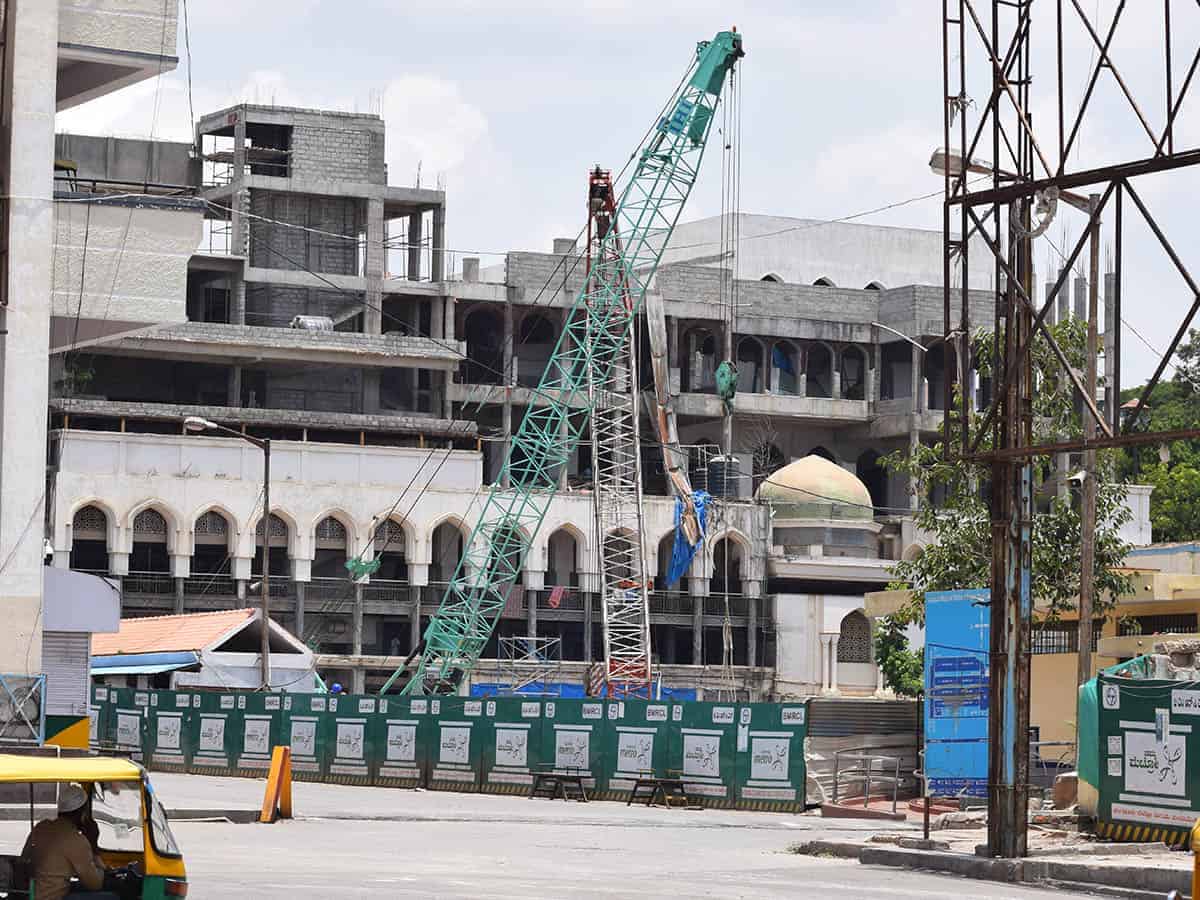M.A. Siraj
Eidul Fitr will be sans Eid-shopping this year for Bengalureans. The shoppers have stayed away from the markets. Clerics, political leaders and civil society activists have issued an appeal to Muslims to avoid shopping for the Eidul Fitr and instead divert some of the resources set aside for the purpose to charities. Consequently, the vast shopping hub in the Muslim-dominated Bengaluru Cantonment wears a deserted look. Vehicles can have hassle-free access to the Russell Market square which used to be barricaded for vehicular movement during the second fortnight of Ramazan owing to huge rush of shoppers. However, there seem to be no vehicles now as the supply chain remains disrupted.

Life has refused to stir in the Commercial Street, the main avenue lined with rows of high-end stores for branded goods. The mostly Muslim-run shops and stores have responded to appeals for closure on the eve of Eidul Fitr, lest the communalized mainstream media blame the Eid shopping for resurgence of covid infection, as it did in the case of Tablighi conclave.
Mubarak, a shop-owner in Russell Market says, no shop has functioned since the March 24 nationwide Lockdown announced by the Union Government. The market built by the British administration in 1933 and inaugurated by Haji Sir Ismail Sait, the leading businessman of the city then, has around 380 shops, selling fruits, flowers, vegetables, spices, poultry & and eggs, mutton and fish. Its dark interiors are a poignant contrast to the resplendent rows of shops displaying fruits, both native and exotic in a riot of colours in normal days.

An eerie silence rules over the Chandini Chowk, the square facing the Market. A prominent street radiating from the square has been sealed for over a fortnight ever since a covid +ve case was detected. There is a somnolent air about all streets leading out of the square. The St. Mary’s Basilica at the entrance of the square has not received any devotees since the Lockdown was announced. A posse of policemen sits lazily under a temporary shelter at the entrance of the historic basilica. Though the microphones of the countless mosques in the Shivajinagar area come alive five times a day issuing the call for prayers, it is all but the formality of azan. The otherwise busy mosques are locked with notices informing the namazis to pray inside homes in keeping with the official instructions.

Let alone swarming crowds, not a soul can be seen in the Evening Bazaar, a collection of over 300 small shoppes, favourite for the women buyers from lower-middle class. Allah Bakash, a shop-owner says he expects the lockdown to lift only after the Eidul fitr.

The huge Shivajinagar Bus Stand, the major transit point for commuters in the Cantonment area of the city, wears the looks of a haunted place what with not a single bus having trundled out of it during the last 50 days. The cranes and bulldozers deployed for construction of Metro station in the adjacent Chhota Maidan have started moving since May 4, at the end of the Lockdown-0.3. The work on the phase-3 of the Metro network in the city is witnessing some revival. But the usual hubbub, cacophony, the cries of the costermongers, the whistles of the bus conductors and the drone of traffic is conspicuous by absence.

It will be a somber Eid this year. No one knows if even the congregational prayers would be allowed by the administration. Two Muslim legislators have pleaded with the authorities to allow the congregations. But there seems to be little prospect, given the City’s inclusion in the Red Zone.

